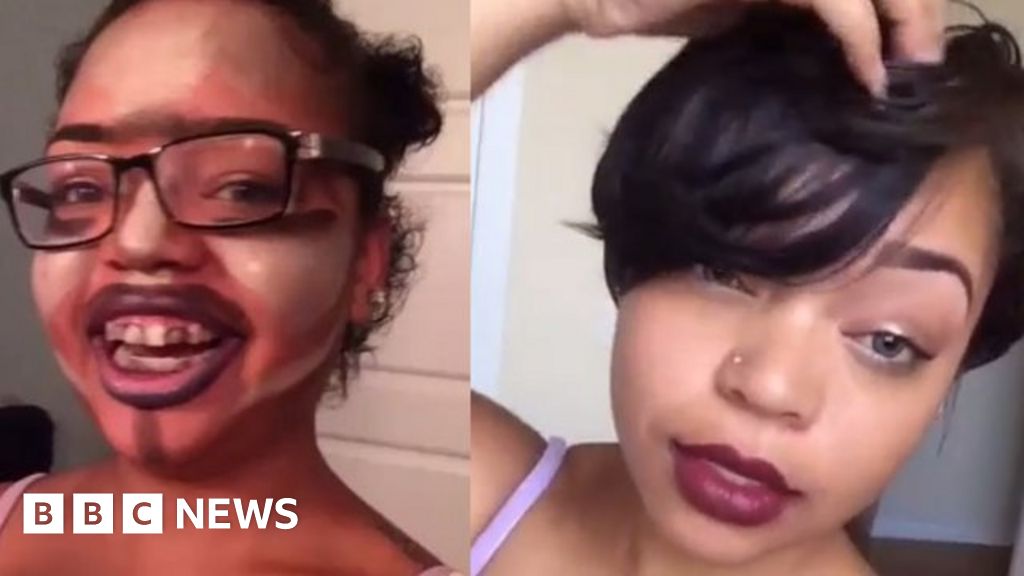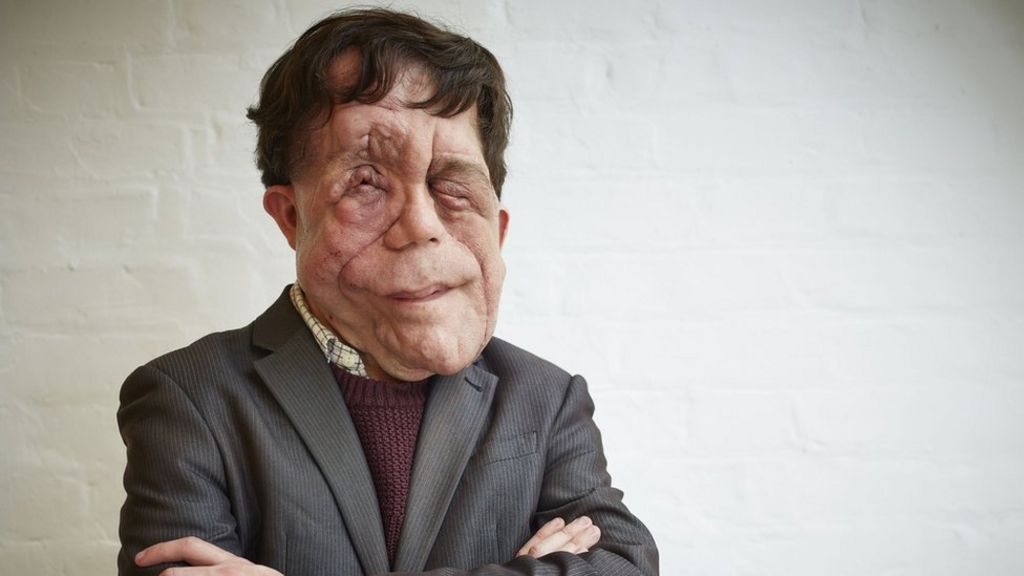Alright, let’s dive straight into the deep end here, folks. The topic of "most ugly people in the world" is one that sparks curiosity, debate, and sometimes even controversy. But hold up, before we get all riled up about it, let’s take a moment to reflect. Beauty and ugliness are subjective, right? What one person finds unattractive, another might find fascinating. So, why do we even talk about this? Well, buckle up, because this is going to be a wild ride. We’re not just talking about physical appearances; we’re diving deep into societal perceptions, psychology, and the human condition. Are you ready? Let’s go!
Now, I know what you’re thinking. "Ugly people? Isn’t that a little harsh?" And you’re absolutely right. The term "ugly" can be pretty loaded, and it’s not always about looks. Sometimes, it’s about behavior, attitudes, or even societal biases. But hey, that’s why we’re here—to unpack all of this and give you the full scoop. This ain’t just about passing judgment; it’s about understanding the complexities of human perception and why we even care about such things in the first place.
So, before we dive into the nitty-gritty, let’s set the stage. This article isn’t here to offend or belittle anyone. Instead, it’s a chance to explore a topic that’s often misunderstood and misinterpreted. By the end of this, you’ll have a clearer picture of what "ugly" really means and how it affects our lives in ways you might not have considered. Sound good? Let’s get started!
Read also:Sheena Melwani Ethnicity Unveiling The Roots Of A Global Icon
Defining Ugly: What Does It Really Mean?
Let’s start with the basics, shall we? What exactly does "ugly" mean? If you crack open your dusty old dictionary, you’ll find that "ugly" is defined as something displeasing to the senses, particularly the eyes. But here’s the thing—ugliness isn’t just about physical appearance. It’s a multifaceted concept that encompasses everything from personality traits to societal norms. In fact, the word "ugly" has evolved over time, and its meaning can vary depending on cultural, historical, and personal contexts.
Breaking Down the Perception of Ugly
When it comes to perceptions of ugliness, there’s a lot more at play than meets the eye. For starters, cultural norms play a huge role. In some societies, certain physical features might be considered unattractive, while in others, they’re celebrated. Take, for example, the concept of body size. In some cultures, being overweight is seen as a sign of prosperity and good health, while in others, it’s often stigmatized. It’s all relative, folks.
Moreover, media and societal pressures have a massive influence on how we perceive beauty and ugliness. From Hollywood blockbusters to social media influencers, the images we consume shape our understanding of what’s attractive and what’s not. And let’s not forget the role of psychology here. Studies have shown that humans are naturally drawn to symmetry and proportion, which is why certain faces might be deemed more "attractive" than others.
The Science Behind Ugliness
Now, let’s get scientific for a moment. Did you know that there’s actually a biological basis for how we perceive beauty and ugliness? It’s all about evolution, baby. Back in the day, our ancestors had to make quick decisions about who was a suitable mate based on physical cues. Things like clear skin, symmetrical features, and a healthy glow signaled good genes and fertility. On the flip side, asymmetrical features or visible imperfections might have been seen as warning signs.
Evolutionary Psychology and Ugliness
But wait, there’s more. Evolutionary psychology suggests that our perceptions of ugliness are deeply rooted in survival instincts. For instance, certain facial features might trigger a subconscious warning bell, alerting us to potential health risks or genetic abnormalities. It’s not about being cruel; it’s about ensuring the survival of the species. Makes sense, right?
And let’s not forget the role of pheromones. Yes, those invisible chemical signals can also influence how we perceive attractiveness. Some studies suggest that people with certain pheromone profiles might be seen as more appealing, while others might be perceived as less so. It’s like a hidden code that affects our interactions without us even realizing it.
Read also:Erykah Badu Baby Fathers Names The Journey Of Love And Legacy
Most Ugly People in History: A Look at the Legends
Now, let’s take a trip down memory lane and explore some of the most infamous "ugly" people in history. I know what you’re thinking—"Who gets to decide who’s ugly?" And you’re absolutely right. But sometimes, historical figures are remembered for their unconventional looks, whether they liked it or not. Take, for example, King Richard III of England. Historians have long debated whether his physical deformities were real or just propaganda. Either way, his reputation as an "ugly" monarch has stuck through the ages.
The Ugly Truth About Historical Figures
Another fascinating case is that of Joseph Merrick, better known as the "Elephant Man." While his physical appearance was undoubtedly unusual, his story is one of resilience and humanity. Despite being labeled as "ugly" by society, Merrick defied the odds and became a symbol of compassion and understanding. It’s a powerful reminder that beauty isn’t just skin-deep.
Then there’s the story of Sarah Baartman, also known as the "Hottentot Venus." Her life was a tragic tale of exploitation, as she was paraded around Europe as a sideshow attraction due to her unusual physical features. Today, her story serves as a poignant reminder of the dangers of objectifying and dehumanizing others based on their appearance.
Modern-Day Ugly People: The Internet Era
Fast forward to the present day, and the internet has completely changed the game when it comes to perceptions of beauty and ugliness. Social media platforms like Instagram, TikTok, and Twitter have given rise to a new kind of celebrity culture, where appearances reign supreme. But with this newfound focus on looks comes a darker side—cyberbullying, body shaming, and the relentless pursuit of perfection.
The Impact of Social Media on Ugliness
So, how does social media affect our perceptions of ugliness? Well, for starters, it amplifies societal pressures to look a certain way. Filters, retouching, and photo editing apps have made it easier than ever to present an idealized version of ourselves to the world. But what happens when reality doesn’t live up to these expectations? Cue the rise of "ugly" memes and online trolls.
It’s a vicious cycle, folks. The more we consume these curated images, the more we internalize unrealistic beauty standards. And when someone doesn’t fit the mold, they’re often labeled as "ugly" and subjected to harsh criticism. It’s not just about looks, though. Personality traits, behavior, and even political beliefs can all play a role in determining who gets labeled as "ugly" in the digital age.
Psychological Effects of Being Labeled Ugly
Now, let’s talk about the elephant in the room—the psychological toll of being labeled "ugly." Research has shown that people who are perceived as unattractive often face discrimination in various areas of life, from job opportunities to romantic relationships. It’s a harsh reality that many of us would rather not acknowledge, but it’s a truth that needs to be addressed.
Self-Esteem and the Ugly Label
Being called "ugly" can have a devastating impact on self-esteem, especially during formative years. Studies have shown that children who are teased about their appearance are more likely to develop anxiety, depression, and other mental health issues. And let’s not forget the long-term effects. Adults who have been labeled "ugly" may struggle with self-worth, social anxiety, and even career setbacks.
But here’s the thing—ugliness isn’t just about looks. Sometimes, it’s about behavior. Think about it. Have you ever met someone who was physically attractive but had a toxic personality? Chances are, you didn’t think too highly of them. Conversely, someone with unconventional looks but a kind heart might leave a lasting impression. It’s all about perspective, folks.
Breaking the Ugly Stereotype: Stories of Triumph
Despite the challenges, there are countless stories of individuals who have defied the odds and shattered the "ugly" stereotype. These are the people who remind us that beauty isn’t just skin-deep. Take, for example, the story of Lizzie Velasquez, a woman born with a rare condition that prevents her from gaining weight. Despite being bullied as a child, Lizzie went on to become a motivational speaker and author, inspiring millions with her message of self-acceptance.
Lessons from Ugly to Beautiful
Then there’s the story of Aimee Mullins, a former Paralympian and model who lost both her legs as a child. Aimee didn’t let her physical limitations define her. Instead, she embraced her uniqueness and became a symbol of strength and resilience. Her story is a powerful reminder that beauty comes in all shapes and sizes—and sometimes, it’s the people who are labeled "ugly" who end up being the most beautiful of all.
And let’s not forget the countless everyday heroes who challenge societal norms and redefine what it means to be beautiful. Whether it’s through their actions, words, or simply their presence, these individuals remind us that true beauty lies within.
Ugly People in the Media: Representation Matters
Finally, let’s talk about representation in the media. For too long, the entertainment industry has perpetuated narrow definitions of beauty, leaving little room for diversity and inclusion. But things are slowly changing. More and more, we’re seeing characters with unconventional looks taking center stage in movies, TV shows, and books. It’s a step in the right direction, but there’s still a long way to go.
The Importance of Diverse Representation
Why does representation matter? Because it shapes our understanding of the world and the people in it. When we see characters who look like us or share our experiences, it validates our existence and gives us a sense of belonging. And when we see characters who challenge our preconceived notions of beauty, it broadens our horizons and encourages empathy.
So, the next time you see a character labeled as "ugly" in a movie or TV show, take a moment to reflect. Is it really about their looks, or is it about something deeper? Because at the end of the day, beauty is in the eye of the beholder—and sometimes, the most beautiful people are the ones who defy all expectations.
Conclusion: Embracing Ugliness as Beauty
Alright, folks, we’ve reached the end of our journey. I hope by now you have a clearer understanding of what it means to be labeled "ugly" and why it’s such a complex topic. Beauty and ugliness are subjective, and they mean different things to different people. But here’s the thing—ugliness doesn’t have to be a negative thing. In fact, it can be a powerful reminder of what it means to be human.
So, the next time you find yourself judging someone based on their appearance, take a step back and ask yourself why. Is it really about their looks, or is it about something deeper? And remember, the most beautiful people are often the ones who embrace their uniqueness and refuse to conform to societal norms.
Now, it’s your turn. What do you think about the topic of "most ugly people in the world"? Leave a comment below and let’s continue the conversation. And if you found this article helpful, don’t forget to share it with your friends and family. Together, we can change the narrative and celebrate the beauty in all its forms.
Table of Contents
- Defining Ugly: What Does It Really Mean?
- The Science Behind Ugliness
- Most Ugly People in History: A Look at the Legends
- Modern-Day Ugly People: The Internet Era
- Psychological Effects of Being Labeled Ugly
- Breaking the Ugly Stereotype: Stories of Triumph
- Ugly People in the Media: Representation Matters
- Conclusion: Embracing Ugliness as Beauty


